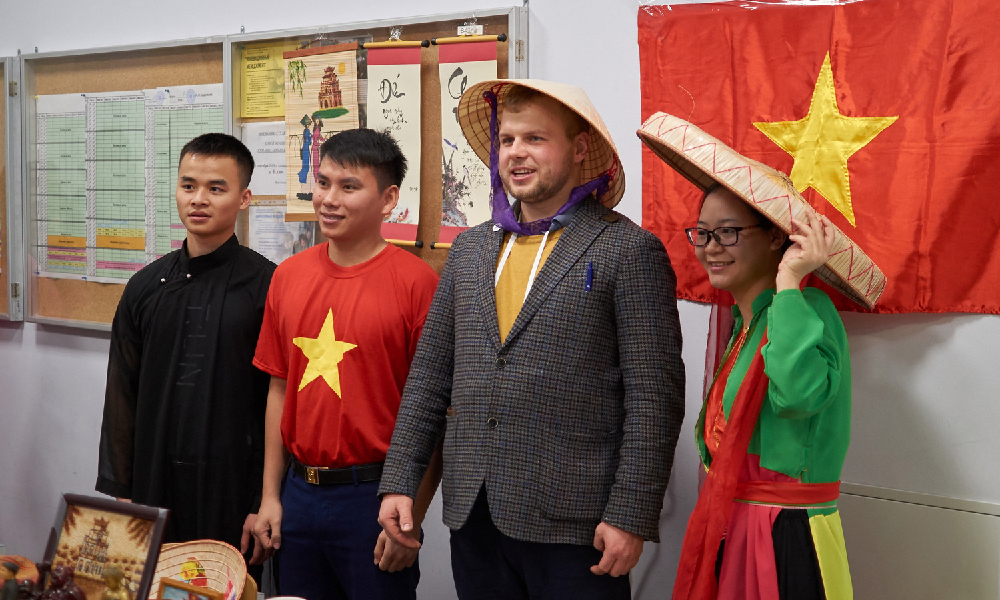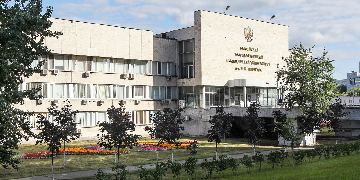The Russian language is steadily ranked among the top hardest languages to learn. The learner’s first language can become an additional challenge in mastering Russian. V. Samuseva, RFL teacher at the Preparatory Department of Moscow Institute of Physics and Technology, talks about why it happens, how to cope with it, and how students from Vietnam learn Russian as a foreign language.
Russian Language. Tips for Learning

Our experience of working with Vietnamese students at the MIPT Preparatory Department shows that most of these students are hard-working and persistent in achieving their goals, which is certainly a positive factor. However, students from Vietnam have to face some difficulties in the learning process.
The point is that the Vietnamese and Russian languages belong to different typological groups, so cross-language interference is inevitable. It manifests itself at all levels: phonetic, grammatical, lexical, and socio-cultural levels.
Articulation
As early as at the initial stage, students face problems when studying the Russian alphabet. There are more consonants in the Russian language than in the Vietnamese language. For example, Vietnamese has no sounds [zh, sh, ts] and some other sounds in Vietnamese, so students have to master new variants of articulation. Besides, the difference between such sounds as [y] and [i], [s], [sh] and [ts] becomes a considerable difficulty. Due to this, students make such mistakes as: “byl” is pronounced as “bil,” “nios” – “niosh,” “tsentr” – “sentr.” In Vietnamese, such Russian consonants as [b-v], [d-z], [t-s], [t-ch] are not differentiated, which can lead to mistakes in pronunciation: “byl – vyl,” “roditeli – roziteli,” “veter – vecher.”
Taking into account the considerable language differences, you should place emphasis on articulation and pronunciation of new unfamiliar sounds.
Another important point is palatalization of consonants. Vietnamese has no such a phenomenon, and consonants are not palatalized. For example, students pronounce the hard sound [l] in the word “pal’to.”
Real challenges are caused by a combination of two consonants in the Russian language. As a rule, one of the consonants drops: “stranitsa” – “tranitsa.” Sometimes an additional vowel is pronounced between the two consonants. For example, the word “plokho” reads [p"lokho].
Another special thing about Vietnamese is that it is syllabic, unlike Russian. It means that words are pronounced and written as separate words irrespective of the number of syllables. That’s exactly why the Vietnamese find it hard to pronounce polysyllabic Russian words as one word, in one breath.
With all this in mind, work on pronunciation and articulation requires a system approach. Try to do as many diverse tasks as possible to practice the pronunciation of fricatives, hard and soft consonants and pronunciation of polysyllabic words as one word.

Word Stress
Many difficulties are caused by word stress. To be fair, native speakers of many other languages share this pain with Vietnamese students. Accentuation in cognate words can embarrass even advanced students. As you know, stress in the Russian language is movable and can differ even in derivative words and forms of the same word. For example, if in the noun “nachálo” the stress falls on the second syllable, Vietnamese students try to keep the same stress in the derivative verb: “nachál” instead of “náchal.”
Special emphasis should be placed on question intonation in a Russian sentence without an interrogative word because declarative and interrogative sentences have identical patterns here.
You can overcome these difficulties not only by studying general rules but also by practicing active listening and reading.
Grammar
Vietnamese has no grammatical gender. It plays a huge part in the Russian language because nouns agree with many parts of speech in gender. That is why genders and inflection of nouns for gender is a stumbling stone.
The same can be said about the case system, which does not exist in Vietnamese, but is one of the key elements of Russian grammar.
It is impossible to successfully master Russian without understanding the importance of gender and prepositional case system. It is important here that you do not neglect both written and oral exercises and memorizing rules and words.
Use visual aids such as tables, diagrams, and situational pictures that will facilitate honing the skill using particular speech patterns. Have patience and practice!
Lexis
Students can also make lexical mistakes caused by the differences in speech patterns. For example, if you say “spasibo” (“thank you”) to a Vietnamese student, they will answer “nichego” (“nothing”) (in translation into Russian), while in Russian we answer “pozhalujsta” (“my pleasure”) or “ne za chto” (“not at all”).
The socio-cultural differences in Russian and Vietnamese societies also have an impact. For example, according to the etiquette rules, Vietnamese school and university students address their teacher using the word “prepodovatel” (“teacher”), while in Russian it is fine to address people by name and patronymic or last name. That is why, even realizing the necessity and appropriateness of using names and patronymics when communicating with Russian people, Vietnamese students say that they feel uncomfortable. This problem will be gradually solved when students practice and immerse themselves in the cultural environment.






